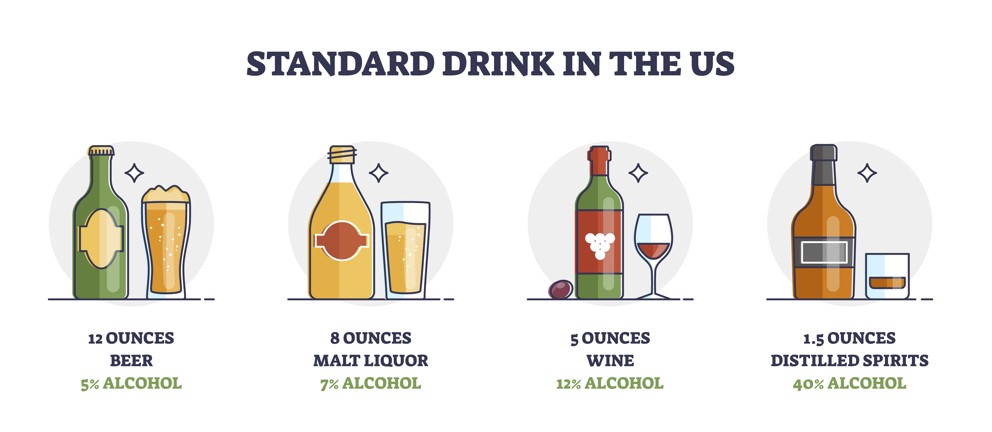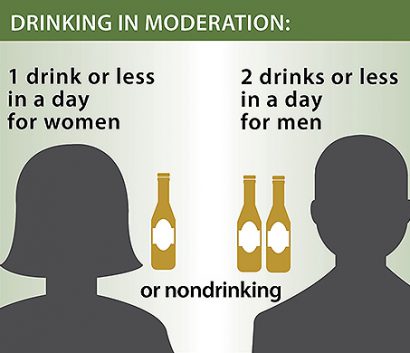
A mixed drink from a restaurant or bar may include more than one shot of liquor and therefore is more than one standard drink. Cans of beer and seltzer often are in pint-size cans, which are also more than one standard drink.

If you choose to drink alcohol, it is recommended to drink in moderation. Moderate drinking is limiting the number of alcoholic drinks you have each day. Moderate drinking for women is one drink or less a day, and for men is two drinks or fewer a day.
Excessive drinking includes heavy drinking and binge drinking. Heavy drinking is when a woman drinks 8 or more drinks per week, or when a man drinks 15 or more drinks per week.
Binge drinking is when blood alcohol concentration (BAC) is 0.08 or higher. A BAC of 0.08 typically happens when women drink 4 or more drinks, and when men drink 5 or more drinks on a single occasion. Binge drinking is common in the United States, but has many health and safety risks.
Someone with alcohol poisoning can choke on their vomit, so you need to keep them sitting up or lying on their side.
Idaho has a Good Samaritan law that protects you if you call for help for someone experiencing alcohol poisoning or a drug overdose, even if you are underage. Always call for help if you think someone has alcohol poisoning.
Excessive drinking is preventable. If you, or someone you know, drinks excessively or has an alcohol use disorder, you can get help. Contact your health care provider to find out if you or someone you know may have an alcohol use disorder. You can also call the National Drug and Alcohol Treatment and Referral Routing Service at 1-800-662-4357. Additional resources are available on the side of this webpage.
215 10th St.
Lewiston, ID 83501
208-799-3100